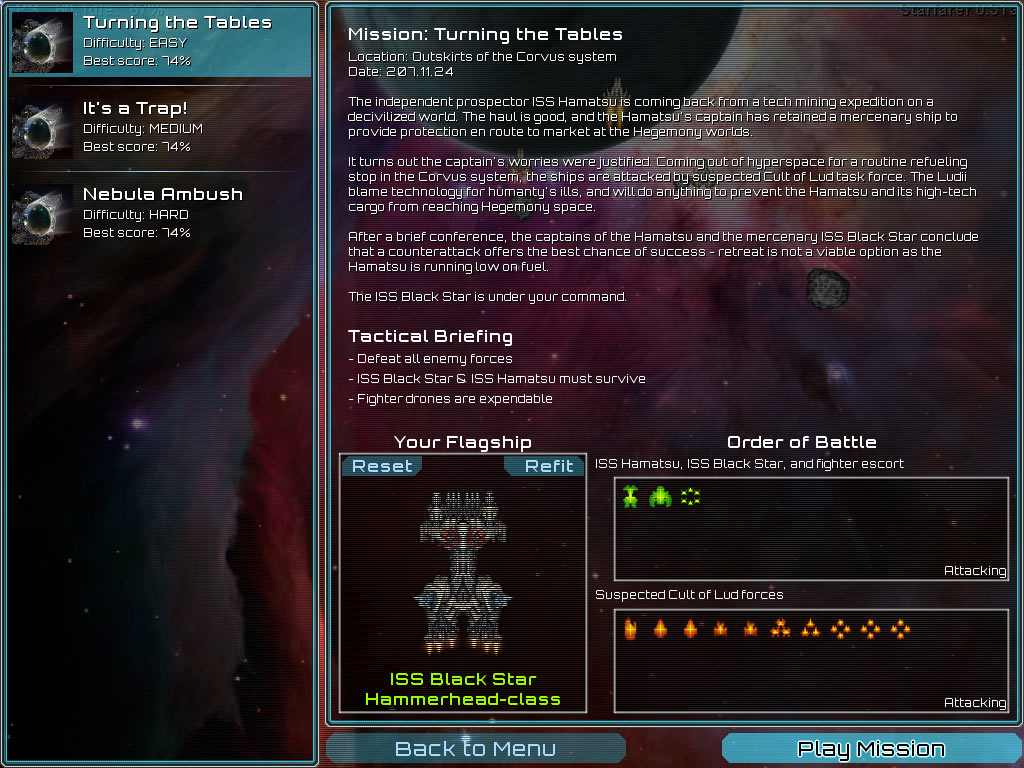Captain Personalities, Fleet Control Update
Ship captains (and wing leaders) can now have their own personalities. What exactly is a personality, in game terms? I’m so glad you asked!
For now, we’re concerned with combat-related aspects, so a captain being greedy or corrupt isn’t important – although it will be once you assign him (or her) to run an outpost for you. A personality consists of two parts – an overall bravery rating, and a desire to perform certain types of assignments (if you haven’t yet, check out this post to see what those are).
The following baseline personalities are in the game now:
- cowardly
- cautious
- steady
- aggressive
- suicidal
- fearless
It’s better to think of these as character traits that will later be combined with non-combat traits to make up a complete personality.
So, what do these *really* do?
Bravery
A captain’s bravery affects the immediate combat performance of their ship. A cowardly captain will hang back unless his side greatly outnumbers the enemy – and will be extremely careful to avoid enemy fire. A fearless captain doesn’t care much about being outnumbered (never tell him the odds), and is willing to face down the guns of the biggest battleship in the Sector if that means performing his duty.
In gameplay testing, a brave captain does much better against tough odds than a cowardly one – they’re able to commit to a a particular maneuver and not interrupt it out of fear, which, ironically, often keeps them safer. However, if the odds are too stacked against them, a brave captain’s ship is almost certainly doomed.
A cautious captain is much more likely to keep their ship safe when the odds are bad, but isn’t as useful in an even fight – unless their ship is armed with long-range support weapons, which they can use effectively while feeling safe. A cautious captain is also quite good at harassment, as he won’t force the issue and can keep an enemy tied down in a game of cat and mouse for a long time.
Assignment Affinity
As the fleet commander, you give general assignments to your fleet. For example, you can order your fleet to assault a particular objective, form a carrier group behind your lines, and patrol an area for enemy presence. The ship captains themselves organize to carry these tasks out, and their personality plays an important role in who does what.
An aggressive captain scoffs at the idea of staying out of direct contact with the enemy. They’re likely to join assaults, capture objectives, perform strikes on enemy battleships – but not hang back wih fire support ships, escort a carrier deep in friendly territory, or (gasp) lead a civilian craft to safety. Suicidal ones will outright refuse to perform some of these duties, finding any excuse to attack the enemy.
Cautious and cowardly captains are naturally the opposite. They’ll look for any excuse to avoid joining a direct assault, and will prefer sitting back in support roles whenever possible – and even retreat against your orders, when it’s not.
Thus, knowing their personalities and managing the assignments you create is important to your fleet’s performance. For example, you might want to keep an overly aggressive captain from going off on their own and getting killed – but telling them to defend a location won’t do. Instead, you might assign them to more dangerous-sounding patrol duty… in a safe location. Read the rest of this entry »























